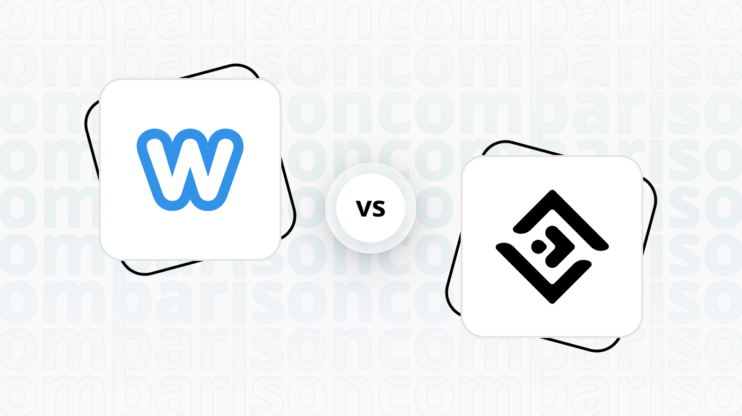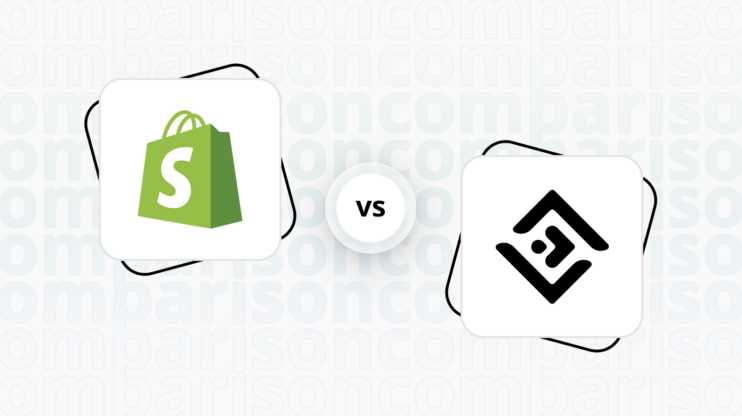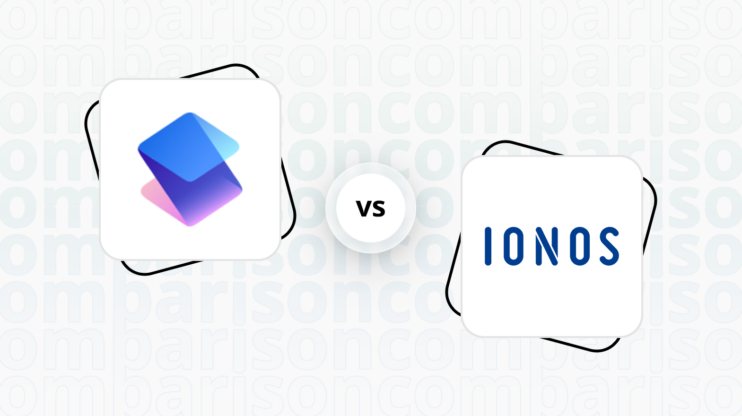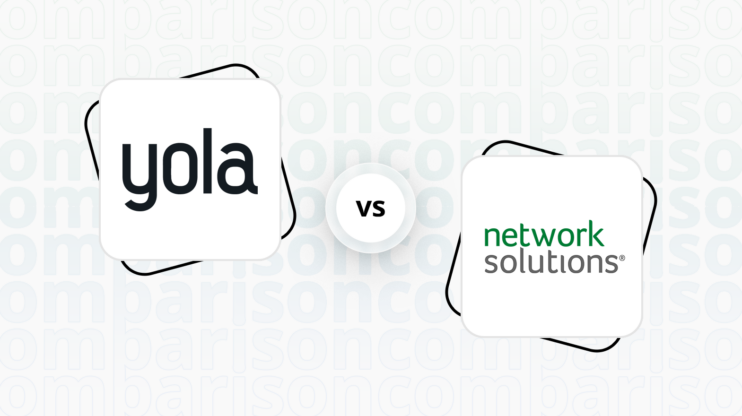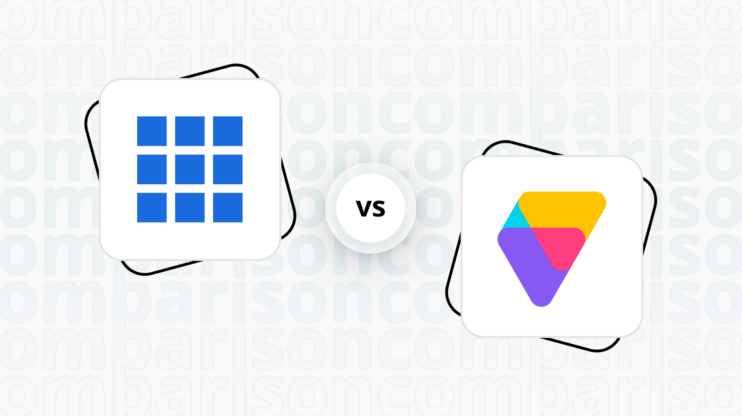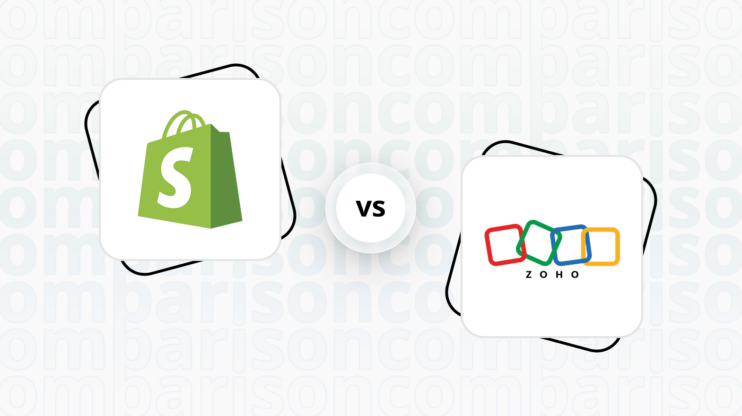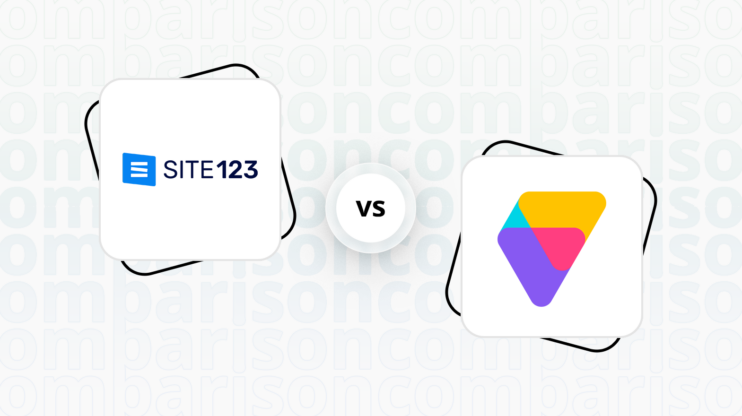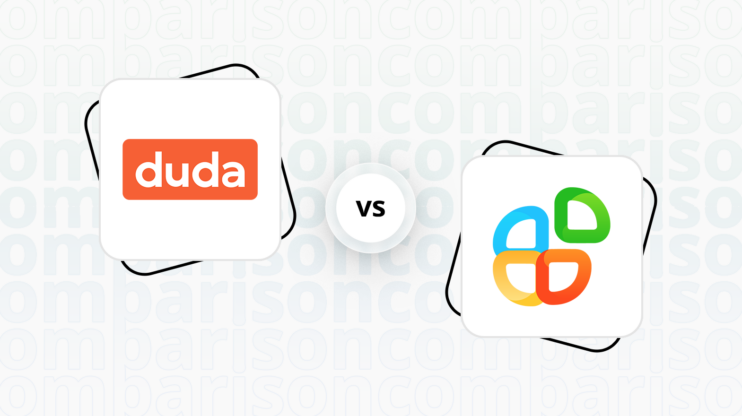Final verdict
Shopify and Weebly offer distinct advantages depending on the user’s needs, with Shopify leading in ecommerce and Weebly excelling in user-friendliness.
-
Shopify (Overall Grade: 8.1/10)
is the superior choice for users seeking a comprehensive ecommerce platform. It shines with its advanced features, extensive app store, and robust customer support, making it ideal for businesses aiming to scale. Shopify’s focus on security and AI capabilities further enhances its appeal to online stores requiring a high level of functionality and customization. -
Weebly (Overall Grade: 7.3/10)
, on the other hand, is best suited for beginners and small businesses looking for an easy-to-use website builder. Its user-friendly interface, affordable pricing, and decent range of features make it a great option for those prioritizing simplicity and cost-effectiveness. While it may not match Shopify’s ecommerce prowess, Weebly still offers a solid platform for creating and managing websites.

|

|
|
|---|---|---|
| Design Functionalities & Templates |
8.2 |
7.4 |
| Ease of use |
7.5 |
8.1 |
| Ecommerce |
9.2 |
7.1 |
| Website Editors |
7.9 |
7.6 |
| Product Testing Options |
8.1 |
8.3 |
| Price |
8.2 |
8.4 |
| Hosting Quality |
9.0 |
7.7 |
| Website Speed Optimization |
7.8 |
7.9 |
| Plugins and Integrations |
8.7 |
7.5 |
| Marketing Features |
8.8 |
7.1 |
| Customer Support |
8.6 |
7.3 |
| Security |
9.0 |
8.3 |
| AI Capabilities |
7.9 |
1.8 |
| User Management |
6.5 |
6.5 |
Best for ecommerce
 9.2
9.2
 7.1
7.1
Verdict
: Shopify outshines Weebly with its comprehensive ecommerce features and scalability, making it the better choice for serious online merchants.
-
Shopify
: With a score of 9.2, Shopify stands as a robust platform for ecommerce, offering advanced features like multi-channel selling and abandoned cart recovery. It’s designed for businesses aiming for growth and scalability. -
Weebly
: Scoring 7.1, Weebly offers a more straightforward approach to ecommerce, suitable for small businesses or those just starting out. While it provides essential tools like secure checkout and inventory management, it lacks the depth of features found in Shopify.
Best for informational & business websites
 6.8
6.8
 7.9
7.9
Verdict
: Weebly is better suited for informational and business websites, offering a more user-friendly experience and a variety of features that cater to a wide range of website types.
-
Shopify
: Primarily focused on ecommerce, Shopify can still support informational websites but may offer more functionality than needed for such sites. Its score of 6.8 reflects its capabilities outside of its ecommerce stronghold. -
Weebly
: With a score of 7.9, Weebly shines as a versatile platform that’s not only easy to use but also comes with a range of features ideal for creating informational and business websites. Its user-friendly drag-and-drop interface and comprehensive design options make it a strong choice for users looking to build professional, effective websites.
Detailed comparison
Design functionalities & templates
Design FunctionalitiesRepresents how well each platform allows for creative design and customization of websites.Score Components:
- Template Variety (30%): Range and quality of design templates.
- Customization (30%): Flexibility and options for design alterations.
- User Interface (20%): Ease and intuitiveness of the design process.
- Responsiveness (10%): Adaptability to different devices and screen sizes.
- Innovation (10%): Unique design features and tools.
 8.2
8.2
 7.4
7.4
🏆
Winner: Shopify.
If you’re looking for a platform that offers a sophisticated look with a focus on online stores, Shopify is the preferred choice.
Shopify’s templates are sleek and professional, ideal for ecommerce sites. They offer a sophisticated look with a focus on online stores. While the free template selection is not large, Shopify’s premium theme store provides a variety of industry-specific options, offering advanced features for a strong brand presence.
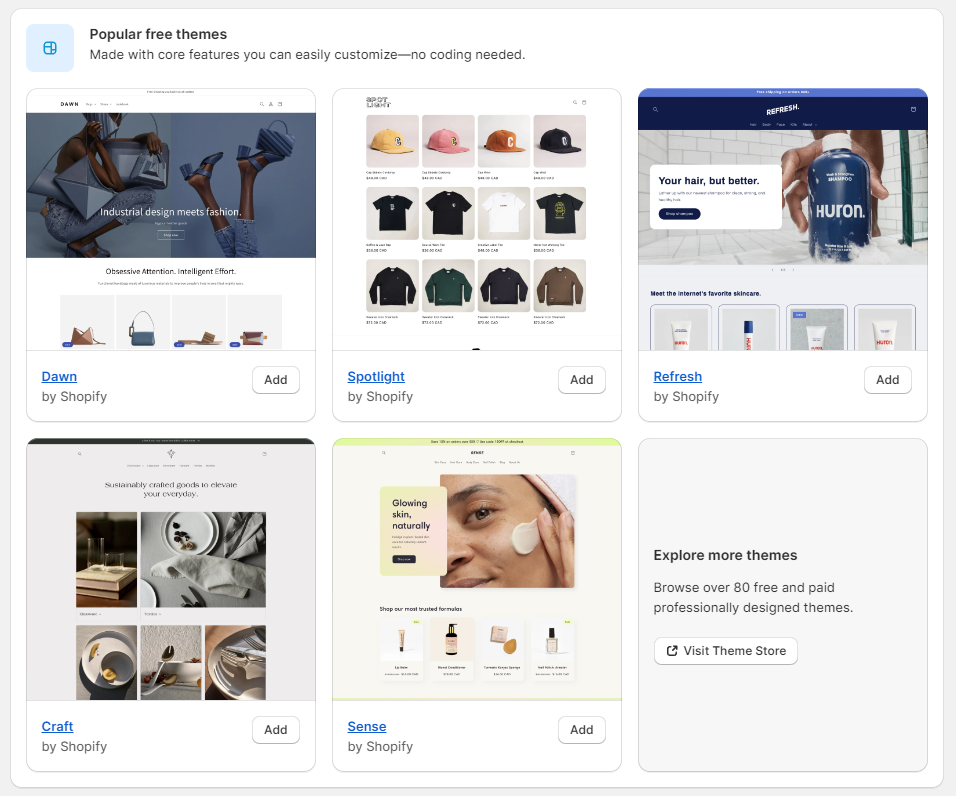
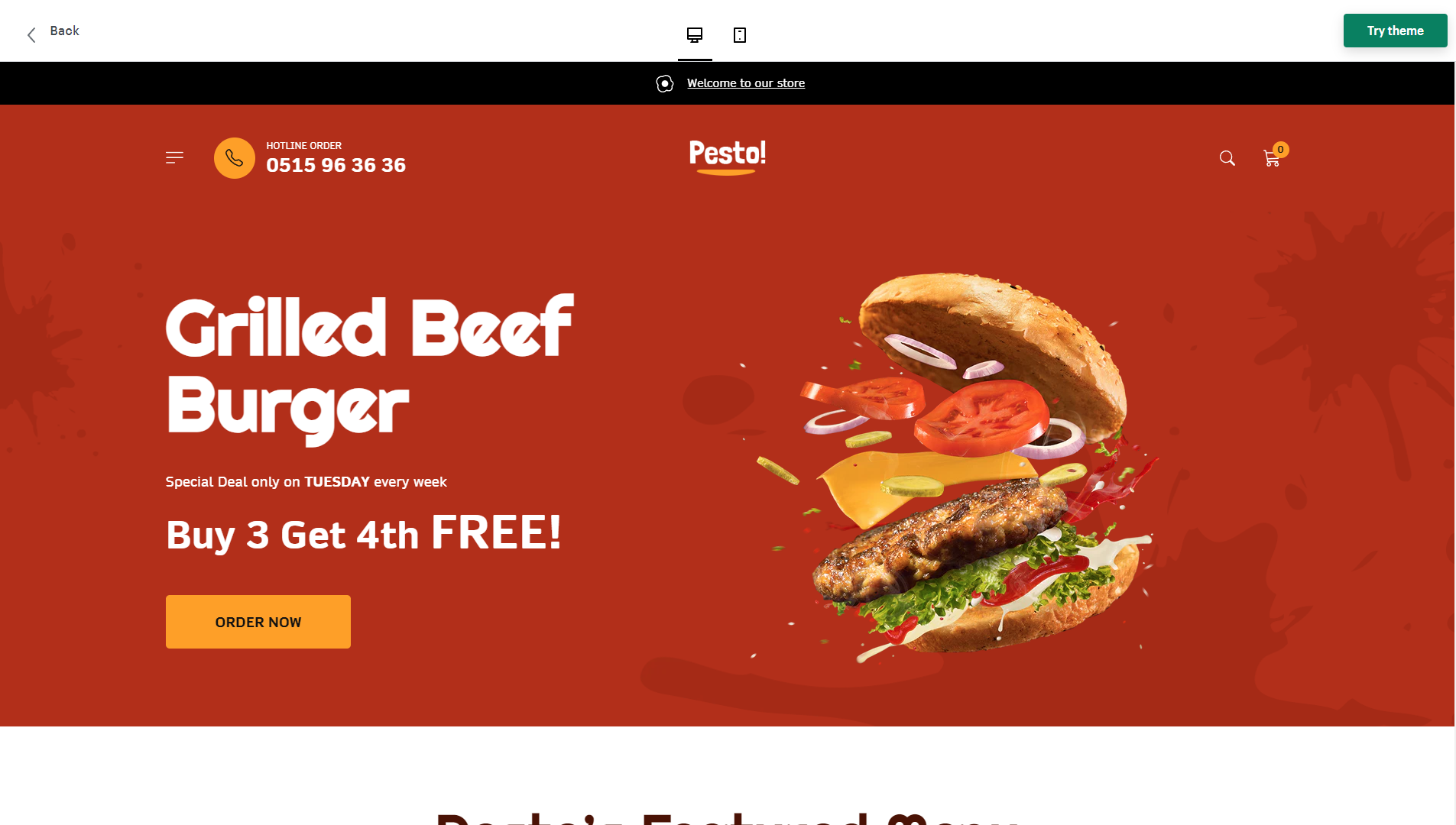
Compared to Shopify, Weebly offers a curated selection of templates, numbering in the low hundreds, which is fewer than some competitors. However, the emphasis is on high-quality, professionally designed templates covering various categories such as business, ecommerce, portfolio, blog, personal, and events. Weebly’s templates are praised for their clean, modern, and responsive design, with easy customization options for colors, fonts, layout, images, and content.
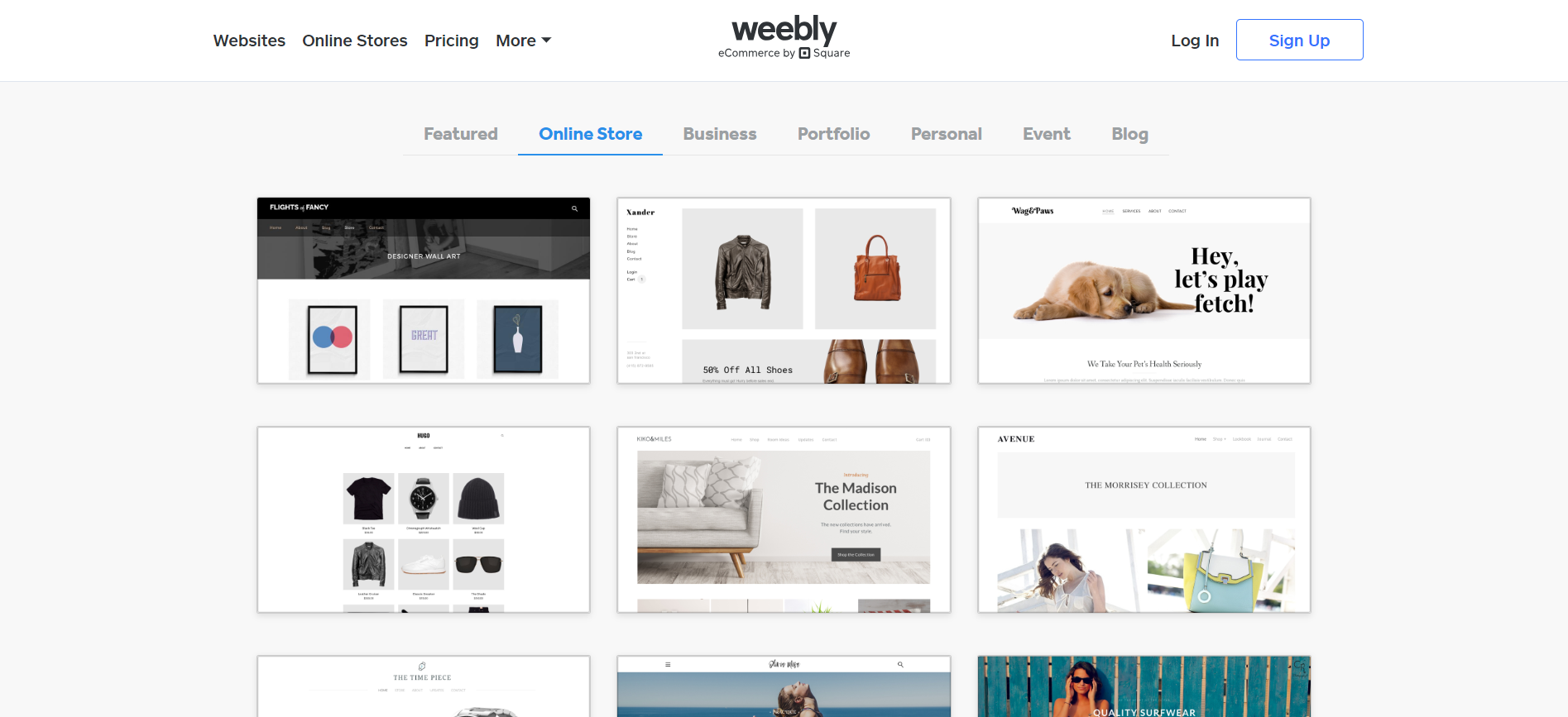
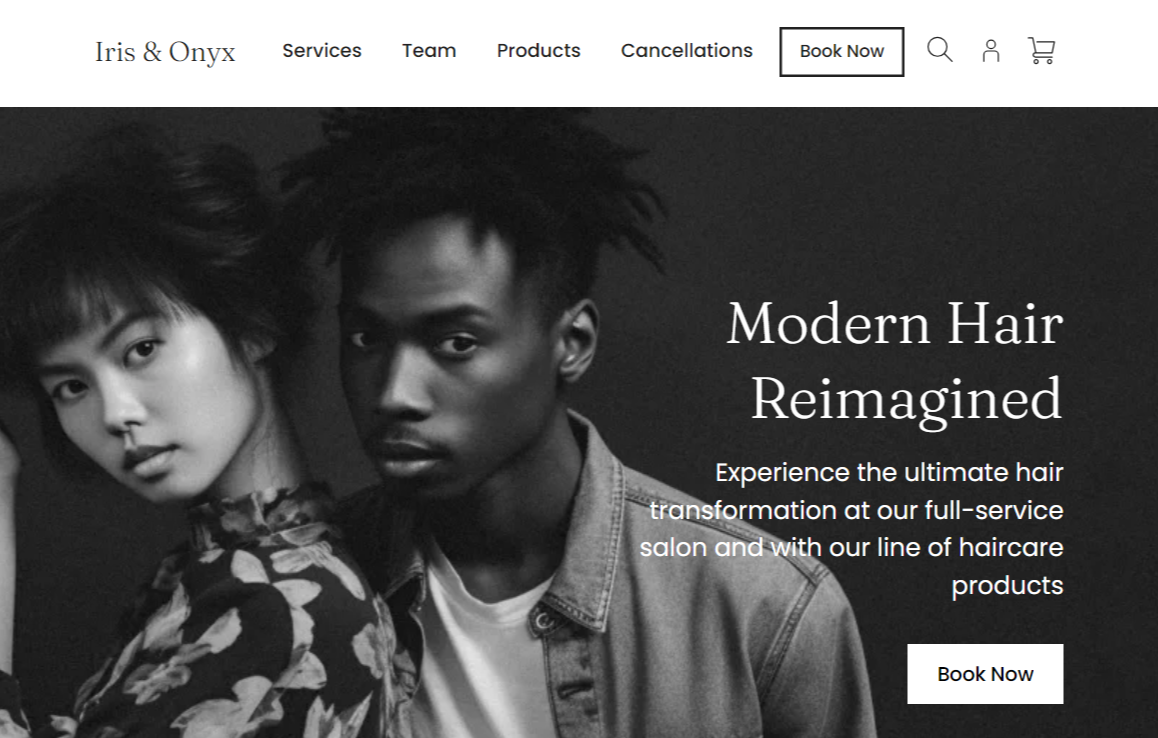
Get a head start on website creation with AI
Create a custom website tailored to your business needs 10X faster with 10Web AI Website Builder!
Ease of use
Ease of useReflects the platform’s overall user-friendliness.Score
Components:
- Learning curve (40%): Quickness and ease of getting started.
- Interface design (30%): Simplicity and intuitiveness of layout.
- User guidance (20%): Quality of tutorials and support.
- Flexibility (10%): Adaptability to various user skills.
 7.5
7.5
 8.1
8.1
🏆 Winner: Weebly
. Scoring 8.1, Weebly edges out Shopify (7.5) in terms of ease of use. Weebly’s drag-and-drop interface, WYSIWYG editing, and mobile-friendly templates make it a user-friendly choice for beginners and experienced users alike. Shopify, while also user-friendly, has a steeper learning curve, especially for those new to ecommerce.
Learning Resources
🏆 Winner: Shopify
. Both platforms offer extensive learning resources, but Shopify’s library of articles, tutorials, webinars, and video courses, focusing primarily on setting up and managing online stores, provides a more comprehensive learning experience for users.
For ecommerce
EcommerceMeasures the platform’s effectiveness in supporting online business activities.Score Components:
- Ecommerce themes and templates (20%): Variety and design of templates.
- Product management (25%): Ease of managing and organizing products.
- Payment options (25%): Variety and convenience of payment methods.
- Ecommerce features (20%): Features for managing an ecommerce store.
- Integration (10%): Compatibility with external e-commerce tools and services.
 9.2
9.2
 7.1
7.1
Shopify and Weebly both offer robust ecommerce solutions, but they cater to different needs. Shopify, with a score of 9.2, is a comprehensive ecommerce platform with advanced features like multi-channel selling, abandoned cart recovery, and detailed analytics. On the other hand, Weebly, scoring 7.1, provides a user-friendly ecommerce solution with unlimited product listings, secure checkout, and customizable shipping options. However, it lacks some advanced features and imposes transaction fees on the free plan.

|

|
|
|---|---|---|
|
Ecommerce themes and templates |
8.2 |
6.5 |
|
Product page customization |
8.5 |
6.8 |
|
Payment processing and commissions |
8.8 |
7.0 |
|
POS capabilities |
8.1 |
6.0 |
|
Payment gateways |
9.5 |
7.5 |
|
Product numbers |
9.0 |
7.0 |
|
Additional ecommerce features |
9.1 |
6.7 |
Shopify ecommerce features:
- Comprehensive store builder
- Shopify Payments and other gateways
- Advanced inventory management
- Multi-channel selling
- Abandoned cart recovery
- Detailed analytics and reporting
Weebly ecommerce features:
- Unlimited products
- Inventory management
- Product reviews and ratings (Paid plans)
- Secure checkout
- Shipping options
- Abandoned cart recovery (Paid plans)
- Basic analytics
- SEO tools
- Marketing integrations (Paid plans)
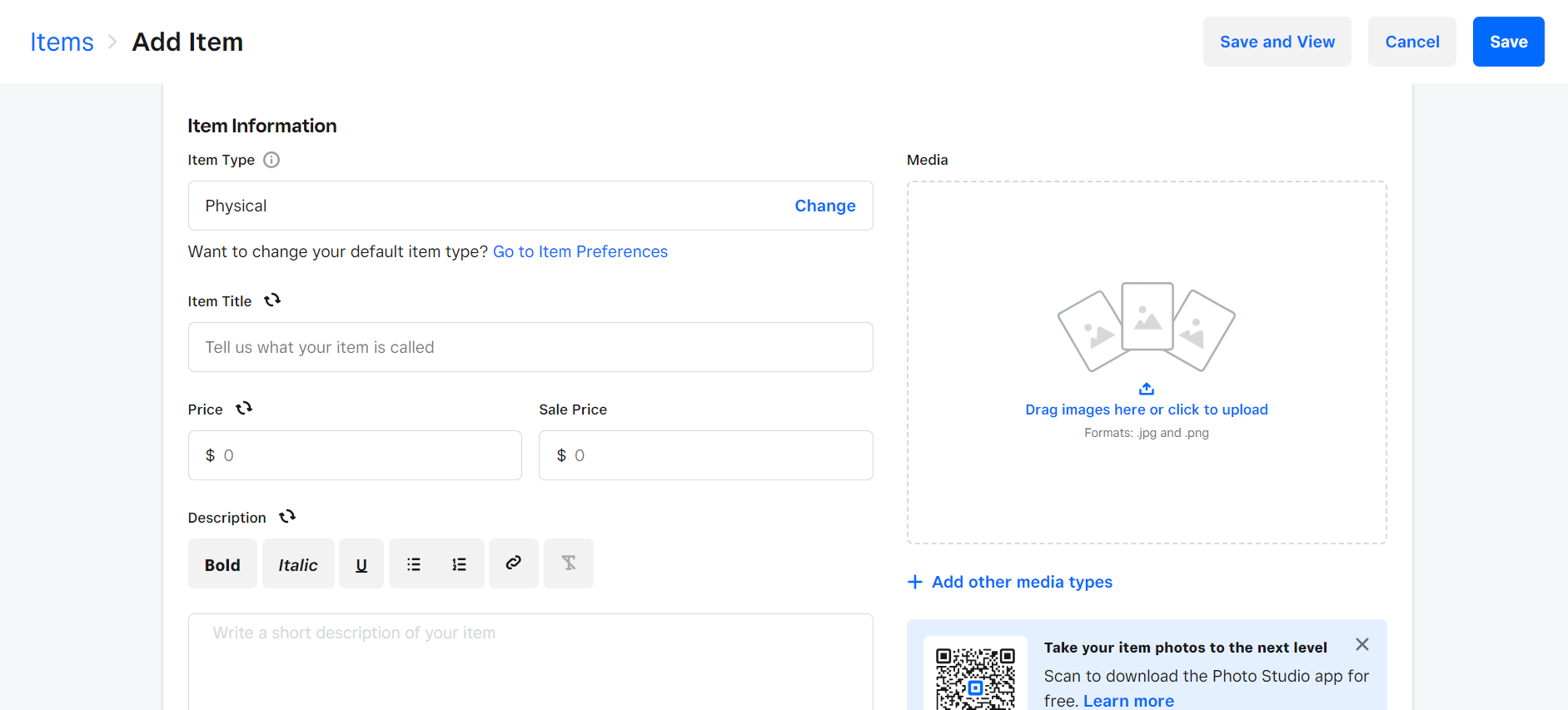
Ecommerce themes & templates
Shopify offers about 150 modern responsive themes for creating a virtual storefront, ensuring a good look on both desktop and mobile devices. While some themes are free, others cost between $170 to $380. In contrast, Weebly provides ecommerce-specific themes with a decent range of styles, offering built-in features like product galleries and optimized checkout flows. However, Weebly’s theme selection is smaller and less flexible, potentially requiring additional costs for premium themes with advanced features.
Product page customization
Shopify allows three options per product, totaling 100 unique variations. For products with numerous options, creating separate listings on Shopify can be a more manageable approach. Shopify offers titles, descriptions, and image galleries with zoom effects, but adding ribbons, size charts, and wishlists are not as straightforward. However, Shopify distinguishes itself with additional features through its extensive library of extra apps, offering functionalities like reviews, Facebook stores, eBay item importers, and a unique Augmented Reality feature for an enhanced customer experience.
Weebly allows a decent level of product page customization through its user-friendly interface, offering options for layout, colors, fonts, backgrounds, and content. Advanced customization, including custom CSS and app integrations, is available with paid plans, but limitations exist in design flexibility compared to dedicated platforms.
Payment processing
Shopify offers payments with typical charges of
2.9% + 30¢
per online transaction on basic plans, and lower fees for higher-tier plans. However, it adds extra fees for using other payment gateways. Shopify Payments is Shopify’s own payment processing gateway, allowing merchants to accept credit card payments directly on their store without having to integrate third-party payment providers.
Weebly seamlessly integrates with popular payment processors such as Square, Stripe, PayPal, and others, enabling secure and convenient online transactions for your store. Users can choose their preferred gateway, set up payment processing within Weebly’s settings, and benefit from features like secure checkout and, on paid plans, options for recurring payments and international transactions.
Website Editors
Website EditorsEvaluates the platforms’ website building and editing capabilities.Score Components:
- Customization tools (40%): Range and power of editing features.
- Editor usability (30%): User experience within the editor.
- Design flexibility (20%): Freedom in layout and design changes.
- Update and maintenance ease (10%): Simplicity of updating and maintaining the site.
 7.9
7.9
 7.6
7.6
🏆
Winner: Shopify
. Shopify, with a score of 7.9, excels in providing a streamlined, ecommerce-focused editing experience. It’s particularly beneficial for users who prioritize efficient management of online stores. The editor is straightforward, making it easy to add products, manage inventory, and set up payment methods. Shopify’s editor is optimized for sales and business growth, with built-in tools specifically designed for ecommerce businesses.
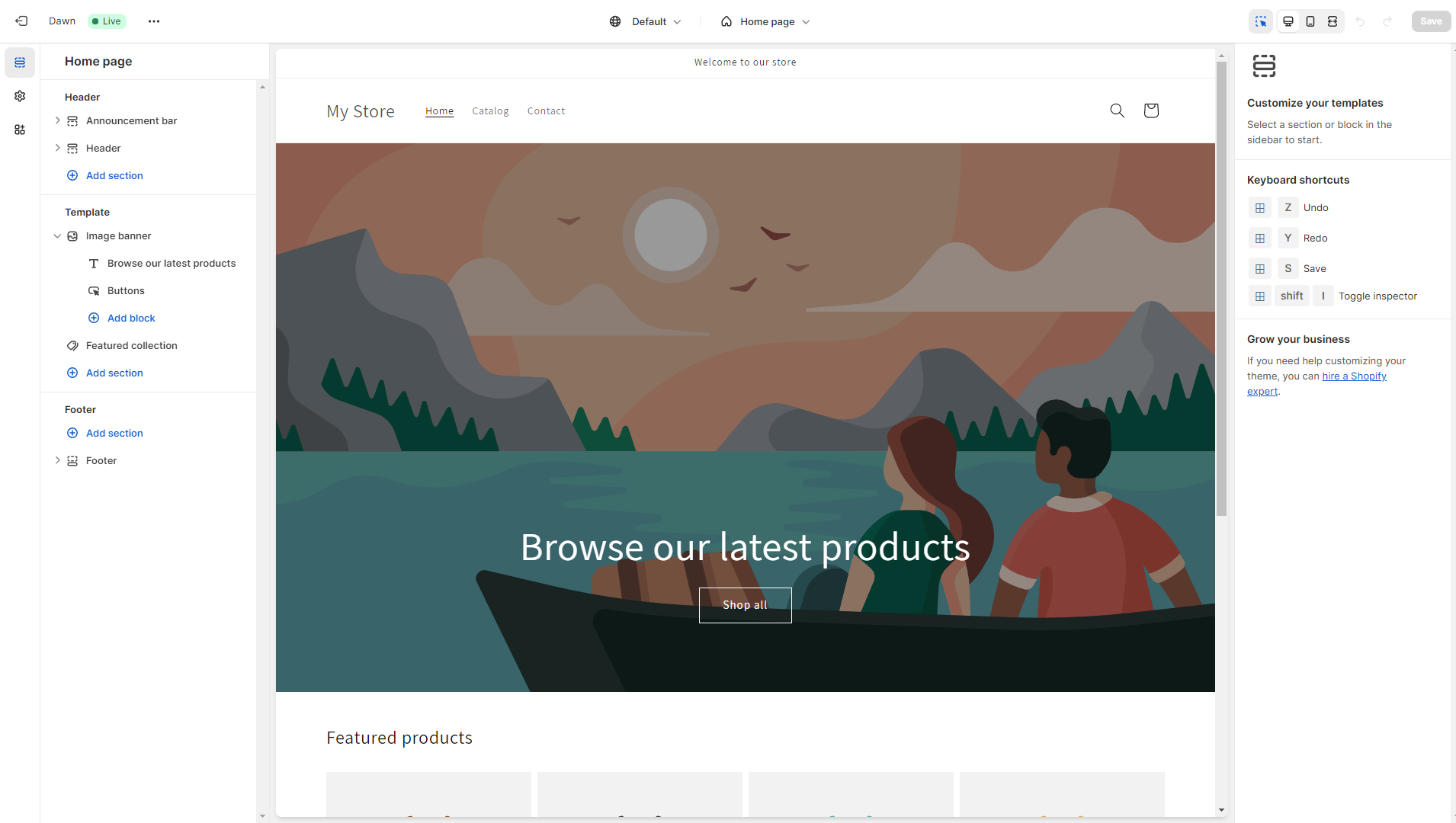
Weebly’s editor, scoring 7.6, stands out for its drag-and-drop simplicity, catering to beginners with an intuitive interface and visual editing. The editor features a range of pre-designed templates, customization options, and content management tools, making it accessible for users without coding knowledge. While offering ease of use, it has some limitations in design flexibility and advanced features, with certain functionalities requiring a move to paid plans.
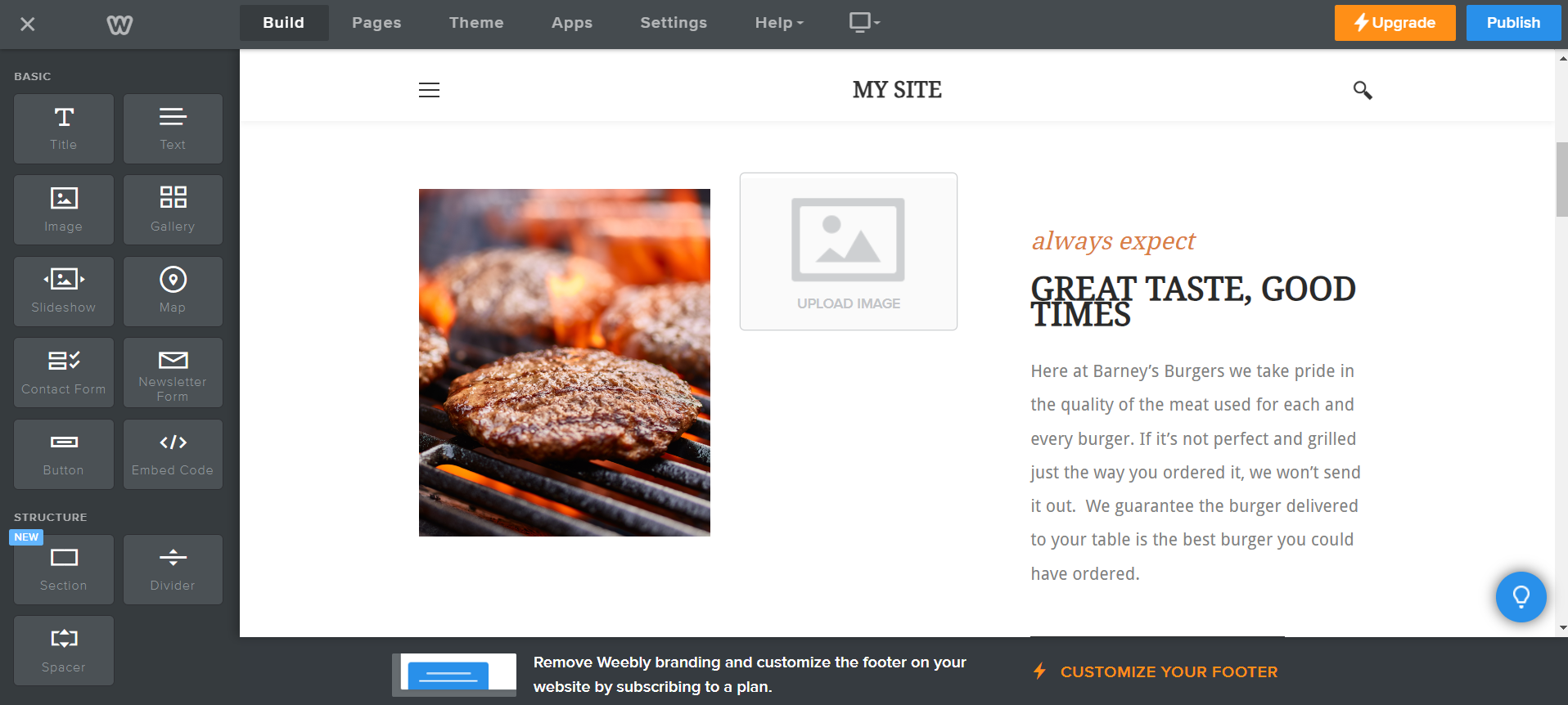
Mobile editor/app
 8.0
8.0
 8.1
8.1
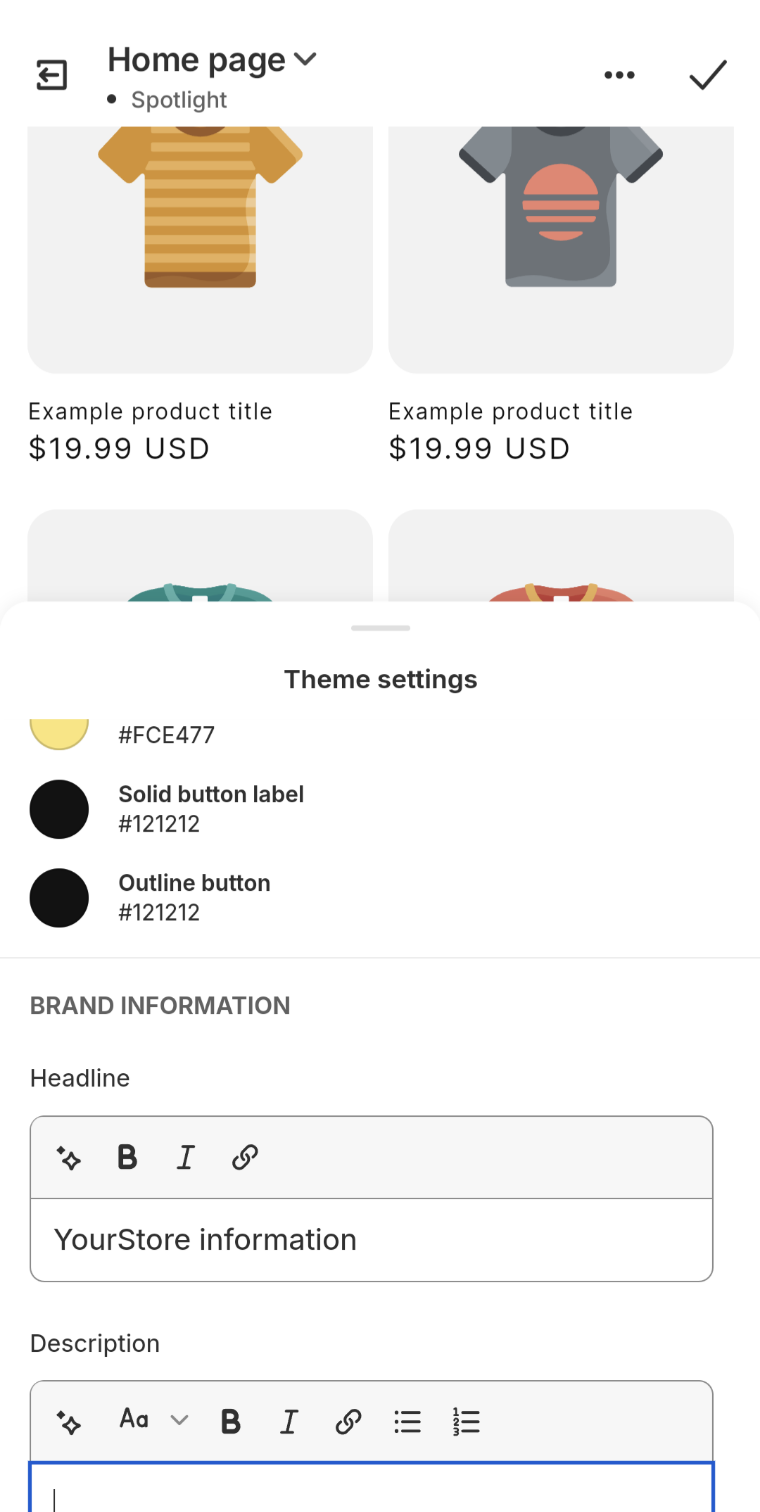
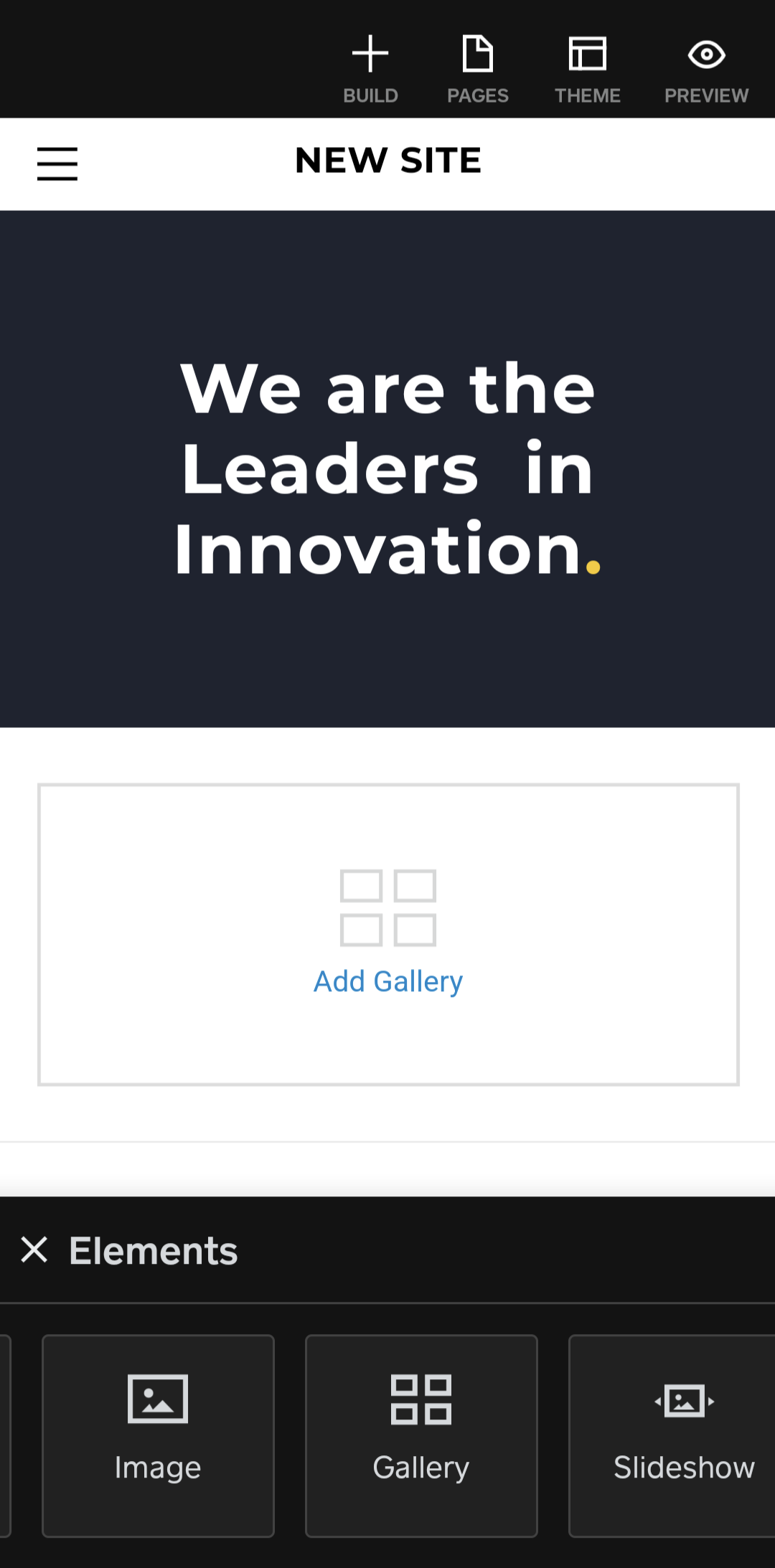
🏆
Winner: Weebly
. Both Shopify and Weebly offer mobile apps for managing your website, but they cater to different needs and skill levels. Shopify’s mobile app is more focused on ecommerce, allowing users to manage their online stores directly from their mobile devices. This includes adding, removing, editing, and rearranging content on the store’s website, offering convenient on-the-go adjustments to the store’s appearance and layout.
Weebly, on the other hand, allows users to manage and make basic edits to their websites on the go. While it offers features like content management and basic design customization, it has limitations, such as no advanced editing capabilities or extensive design flexibility, making it best suited for quick content updates rather than major design changes.
In summary, Weebly receives a slightly higher rating due to its user-friendly interface and basic editing capabilities, while Shopify is strong in ecommerce management but may be better suited for users with some experience.
Product testing options
Product Testing OptionsAssesses the options for trying out platform features before commitment.Score Components:
- Trial quality (40%): Extent and usefulness of the trial or free version.
- Feature accessibility (30%): How many features are available to test.
- Trial duration (20%): Length of the trial period.
- Ease of transition (10%): Smoothness of moving from trial to paid plans.
 8.1
8.1
 8.3
8.3
Overall Result
:
Weebly Wins
. Weebly scores slightly higher than Shopify with a score of 8.3 compared to Shopify’s 8.1. While both platforms offer ways to test their product, Weebly’s 30-day money-back guarantee and the availability of a free version give it an edge over Shopify.

|

|
|
|---|---|---|
|
Free Plan |
No (14-day free trial) |
Yes |
|
Trial Duration |
14 days |
No, however they have 30 days money back guarantee |
|
Testing Premium Features |
All features during free trial |
Yes, with 30-day money back guarantee |
Price
PriceLooks at the cost-effectiveness and value for money of each platform.Score Components:
- Plan value (40%): What each pricing tier offers.
- Transparency and clarity (30%): Clearness of pricing structures.
- Flexibility of plans (20%): Range of options to suit different budgets.
- Hidden costs (10%): Additional expenses not included in the plan.
 8.2
8.2
 8.4
8.4
Weebly offers a more affordable range of plans, including a free option, while Shopify’s plans are more expensive but offer more advanced ecommerce features.

|

|
|
|---|---|---|
|
Free |
No offering at this amount. |
Free ($0/month): Basic template selection, 500MB storage, Weebly ads, limited features |
|
$0-$10 |
No offering at this amount. |
Personal ($6/month): Custom domain, unlimited storage, ad-free, limited SEO and email marketing tools Value for price: 6.0 |
|
$10-$20 |
No offering at this amount. |
Professional ($12/month): Advanced design options, blog membership features, advanced SEO tools, form analytics Value for price: 7.5 |
|
$20-$30 |
Shopify Basic ($29/month): Unlimited products, 2.9% + 30¢ card fee with Shopify payments, Extra 2% gateway fee without Shopify Payments, Abandoned cart recovery, Automated sales tax, Digital products, POS Integration, 2 staff accounts. Value for price: 8.0 |
Performance ($26/month): Advanced ecommerce features, lead capture tools, custom code injection, marketing automation Value for price: 9.0 |
|
$70-$80 |
Shopify Standard ($79/month): Lower card fees (2.6% + 30¢), Gift cards, Professional reports, 5 staff accounts. Value for price: 8.5 |
No offering at this amount. |
|
$200+ |
Advanced Shopify ($299/month): Lowest card fees (2.49% + 30¢), Advanced report builder, Real-time carrier shipping, Up to 15 staff accounts Value for price: 8.8 |
No offering at this amount. |
Hosting quality
Hosting
qualityExamines the reliability and performance of the hosting solutions.Score Components:
- Uptime (40%): Consistency and reliability of website availability.
- Speed (30%): Loading times and performance.
- Bandwidth and storage (20%): Sufficiency of resources provided.
- Data centers (10%): Quality and distribution of hosting infrastructure.
 9.0
9.0
 7.7
7.7
🏆
Winner: Shopify
Shopify’s proprietary cloud-based hosting, with a 99.99% uptime guarantee and 5 global data centers, is designed for high-traffic online stores. Weebly, on the other hand, offers shared, cloud-based, and managed hosting with a 99.9% uptime guarantee. However, Weebly has been critiqued for slow page loading times and does not disclose the specific locations of their data centers.

|

|
|
|---|---|---|
|
Do they offer hosting? |
Yes, included in all paid plans |
Yes, included in all paid plans |
|
Data Centers: |
5 globally: USA (Ashburn, Virginia; Santa Clara, California), Canada (Toronto, Ontario), Ireland (Dublin), and Singapore |
Weebly leverages a global network of data centers to deliver reliable and efficient website hosting. However, they do not publicly disclose, the specific locations of their data centers due to security and technical reasons. |
|
Type of hosting: |
Proprietary cloud-based hosting |
Shared Hosting, Cloud Based Hosting, Managed Hosting |
|
Uptime: |
99.99% |
99.9% |
|
Uptime Guarantee: |
Yes, 99.99% |
Yes, 99.95% |
Website Speed Optimization
Website Speed OptimizationEvaluates optimization of website loading timesScore Components:
- PageSpeed Score (30%): Google’s score indicating performance optimization.
- Loading Time (30%): The average time until a website is fully interactive.
- Mobile Optimization (15%): Optimization effectiveness for mobile devices.
- Resource Optimization (15%): Optimizing images, scripts, and other heavy resources.
- CDN Usage (10%): Use of CDN to enhance speed across geolocations.
 7.8
7.8
 7.9
7.9
🏆 Winner: Weebly
Both Shopify and Weebly prioritize website performance and page speed, but Weebly edges out Shopify with a slightly higher score in website speed optimization.

|

|
|
|---|---|---|
|
Focus |
App optimization, Google AMP |
Load balancing, CDN |
|
Performance Tools |
Google Lighthouse, PageSpeed Insights |
Google PageSpeed Insights Integration |
|
Key Strategies |
App efficiency, Theme optimization |
Load balancing, CDN |
|
Load Times |
Varies widely, dependent on optimization |
2s to 4s |
|
Page Speed Scores Range |
Scores vary; influenced by apps, images |
Average 80+/100 |
|
Core Web Vitals Improvement |
Emphasis on LCP, FID, CLS improvements |
Significant enhancements in CWV performance |
Shopify’s approach to enhancing site speed includes app optimization by removing unneeded app code, conditionally loading apps, avoiding immediate pop-up displays, and incorporating app functionality directly into themes. This approach leverages Shopify’s fast servers and CDN network to boost load speed. Shopify also suggests utilizing Google AMP for faster mobile page loads, although with some design compromises. Analysis of three Shopify sites showed a range of Shopify speed scores from 14 to 75, Google PSI scores from 8 to 80, and load times varying from 10.6 seconds to 2.3 seconds. Continuous maintenance and optimization are essential for keeping Shopify stores fast.
Weebly, on the other hand, has significantly enhanced its Core Web Vitals performance by implementing measures such as automatic image optimization, lazy loading for content, code minification, and caching. These improvements, along with streamlined JavaScript usage and an enhanced server infrastructure, aim to boost website loading speed and responsiveness. Weebly’s load times range from 2s to 4s, and its average PageSpeed score is 80+/100.
Get a head start on website creation with AI
Create a custom website tailored to your business needs 10X faster with 10Web AI Website Builder!
Plugins and integrations
Plugins and integrationsMeasures the range and effectiveness of additional plugins and integrations.Score Components:
- Variety of options (40%): Range of available add-ons.
- Integration smoothness (30%): Ease of integrating plugins into the site.
- Quality of plugins (20%): Functionality and reliability of the options.
- Custom integration capabilities (10%): Support for custom or third-party integrations.
 8.7
8.7
 7.5
7.5
🏆 Winner: Shopify.
Shopify, with a score of 8.7, outperforms Weebly, which scores 7.5, in terms of plugins and integrations. Shopify’s extensive app store, with over 8,000 apps, provides a wide range of functionalities, making it a robust platform for ecommerce businesses. Weebly, on the other hand, offers a decent range of integrations, but it doesn’t quite match the breadth and depth of Shopify’s offerings.
However, Weebly’s integrations are more diverse, catering to a wider range of website types, not just ecommerce. So, depending on your specific needs, Weebly might still be a good fit.
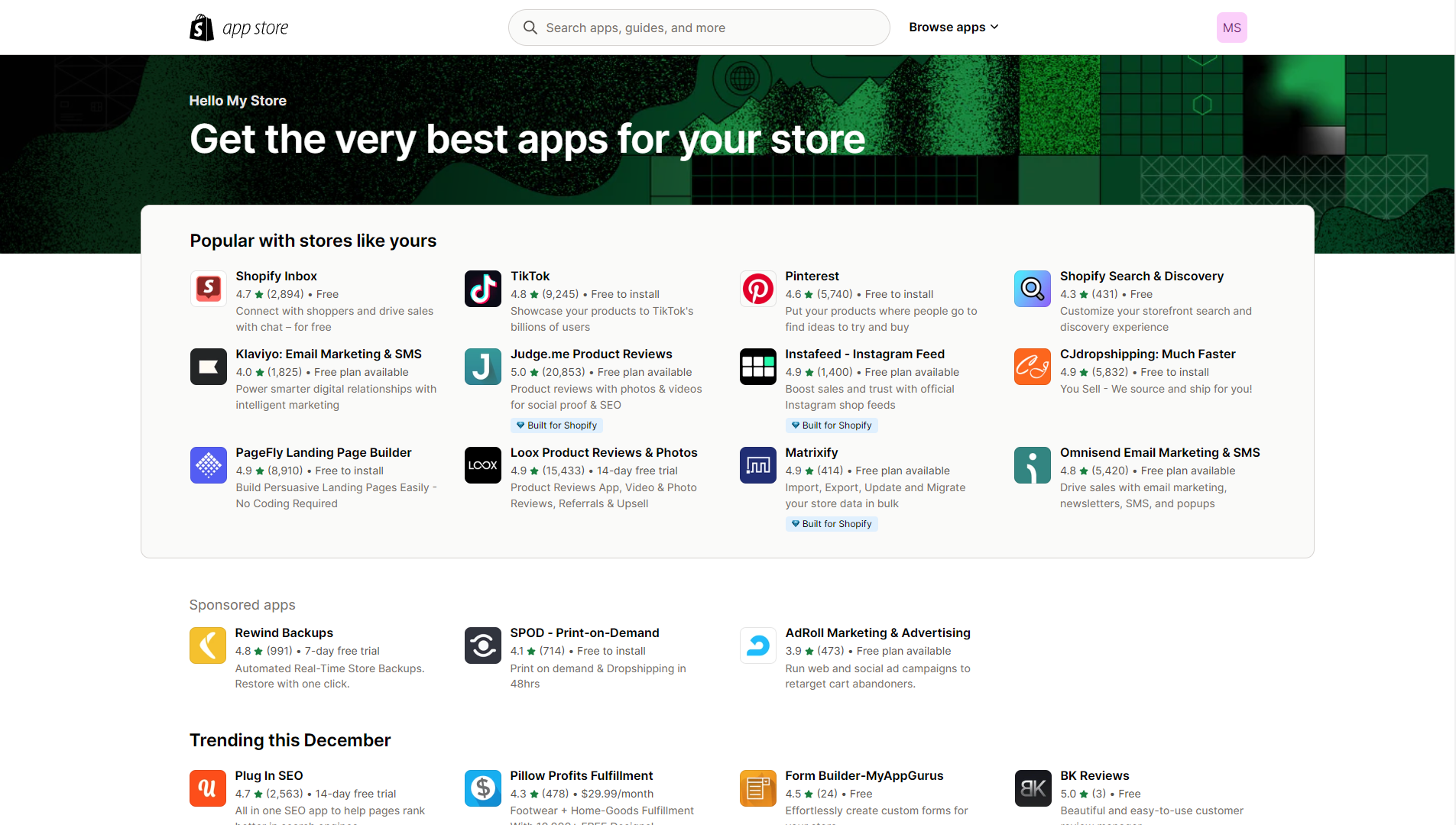
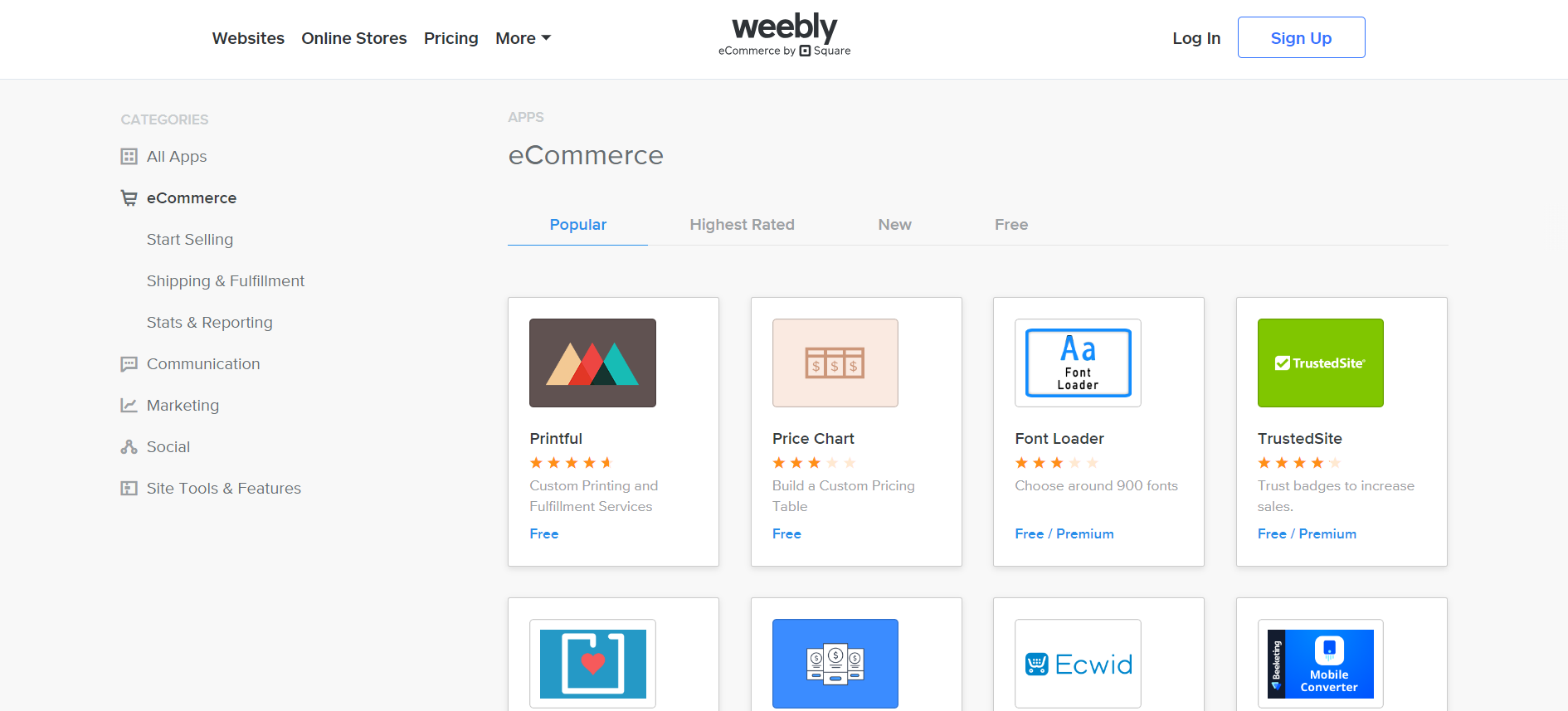
Marketing Features
Marketing featuresAssesses tools and options available for marketing.Score Components:
- SEO tools (40%): Effectiveness of SEO features.
- Marketing automation (30%): Availability and quality of marketing tools.
- Social Media integration (20%): Ease and depth of social media connectivity.
- Email marketing (10%): Quality and usability of email marketing tools.
 8.8
8.8
 7.1
7.1
🏆
Overall Winner: Shopify
. Shopify stands out for its more advanced ecommerce-focused marketing tools, especially in analytics and ad campaign management. Weebly, while offering a comprehensive set of marketing tools, is more suited for general website building and less focused on ecommerce.

|

|
|
|---|---|---|
|
SEO Tools |
|
|
|
Email Marketing |
|
|
|
Blogging |
|
|
|
Social Media Integration |
Advanced integration for selling directly on social platforms |
Easy link to social media accounts and share buttons |
|
Analytics and Reporting |
Detailed analytics for in-depth insights |
Built-in analytics for tracking site performance |
|
Ads and Promotions |
Google Ads integration; sophisticated ad campaign management |
Integrated marketing tools for creating and managing ads |
Customer Support
Customer supportEvaluates the quality and availability of support options.Score Components:
- Response time (40%): Speed of support responses.
- Support quality (30%): Effectiveness and helpfulness of the support.
- Availability (20%): Range of support channels (phone, chat, email).
- Resource richness (10%): Quality of self-help and educational materials.
 8.6
8.6
 7.3
7.3
🏆 Winner: Shopify
. Shopify outperforms Weebly in this category with a score of 8.6 compared to Weebly’s 7.3. Shopify provides 24/7 support through chat, email, and phone, and it offers a dedicated program and additional resources for enterprise-level businesses.
Weebly, on the other hand, offers a variety of support options, including an Online Help Center, a Community Forum, and Email Support. Live Chat is available during limited hours, and Phone Support is offered to Pro and Business plan users in the US and Canada during specific hours. Weebly also provides a dedicated account manager, priority phone support, and enhanced onboarding and training resources for Business plan users. However, these features were not enough to surpass Shopify’s comprehensive and round-the-clock customer support.
Security
SecurityLooks at the platforms’ security measures and data protection.Score Components:
- Data protection (40%): Safeguards for user and customer data.
- SSL and encryption (30%): Implementation of secure connections.
- Compliance (20%): Adherence to industry security standards.
- Regular updates (10%): Frequency of security updates and patches.
 9.0
9.0
 8.3
8.3
🏆
Winner: Shopify
. Shopify’s focus on security is paramount, offering robust protection with SSL certificates, PCI compliance, and regular updates to safeguard against threats. This is especially vital for ecommerce sites dealing with sensitive customer data. Shopify’s infrastructure is designed to provide high-level security, giving store owners and customers peace of mind.
Weebly also places a strong emphasis on security, employing secure data centers, routine system updates, encryption through SSL certificates, and compliance with PCI standards. However, it falls slightly short when compared to Shopify’s specialized ecommerce security features.
AI Capabilities
AI capabilitiesMeasures the effectiveness of AI-driven features and tools.Score Components:
- Automation efficiency (40%): Impact of AI on streamlining processes.
- Personalization (30%): AI-driven customization for users or customers.
- AI-Assisted design (20%): Role of AI in website design and functionality.
- Data analysis (10%): Use of AI in interpreting user data and analytics.
 7.9
7.9
 1.8
1.8

|

|
|
|---|---|---|
|
AI Builder |
Shopify AI Builder offers functionalities like theme section builder, content generation, SEO optimization, and email marketing tools. |
|
|
AI Ecommerce Features |
Shopify pioneers AI-driven eCommerce with personalized recommendations, dynamic search, and automated marketing. |
Weebly doesn’t offer any built-in AI-powered features specifically for ecommerce within its platform. |
|
AI Content Generation |
Shopify’s AI features Content Assistant which helps to brainstorm ideas, overcome writer’s block, and generate outlines for product descriptions, blog posts, social media captions, and more. |
Weebly itself lacks native AI content generation features. However, you can utilize third-party tools like Jasper, Copy.ai, and ShortlyAI for AI-powered content creation. |
|
Additional AI Features |
Shopify offers additional AI features like demand forecasting, automated replenishment, smart fraud detection, chargeback management, AI-powered chatbots, sentiment analysis, route optimization, and warehousing optimization. |
While Weebly does not have native AI capabilities, it is possible to integrate third-party AI-powered plugins, such as Copy.ai and Jasper. |
🏆 Winner: Shopify
. Shopify, with a score of 7.9, utilizes AI mainly to enhance the ecommerce experience. Its AI features focus on customer behavior analysis, personalized shopping experiences, inventory management, and sales predictions. While Shopify’s AI is powerful, it is more business and data-centric compared to Weebly’s lack of native AI capabilities.
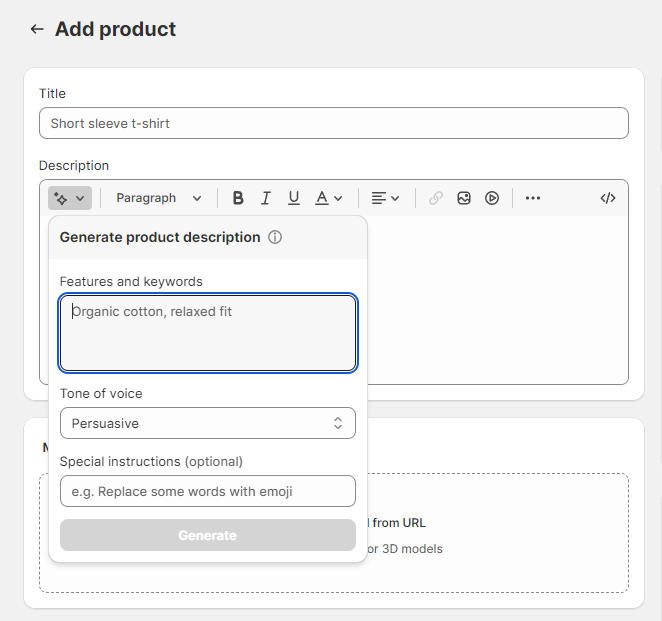
User Management
User ManagementAssesses the platforms’ capabilities in managing user roles, permissions, and accessibility.Score Components:
- Role Customization (40%): Flexibility in creating and defining user roles and
permissions. - Ease of Management (30%): User interface and tools for managing users.
- Access Control (20%): Effectiveness of access control measures for different user
levels. - Scalability (10%): Ability to manage a growing number of users efficiently.
 6.5
6.5
 6.5
6.5
🏆 Winner: Tie
. Both Shopify and Weebly have their unique approaches to user management.
-
Shopify enforces staff account limits based on plans, ranging from 2 to 15, with Shopify Plus offering unlimited
accounts. Collaborators with limited access are also an option. - The number of users permitted to edit a Weebly website varies depending on the plan selected. The Free Plan allows only one user, suitable for personal or simple projects, while the Personal Plan accommodates two users, making it appropriate for small businesses or collaborative efforts. The Professional Plan permits up to 10 users, catering to growing businesses or teams with specific roles, and the Business Plan offers unlimited user access.
Shopify User Roles and Access Levels:
| Role | Description | Access Highlights |
|---|---|---|
| Store Owner | Full control over store | Manage products, orders, discounts, payments, apps, settings. Create and manage staff accounts. |
| Staff | Configurable access by owner |
Add/edit products, manage orders, fulfill orders, manage customers, update content. Access level can be customized by the owner. |
| Collaborator | Limited access for external partners | View and manage specific sections like blog or product categories. Cannot access full store settings. |
Weebly User Roles and Access Levels:
| Role | Description | Access Highlights |
|---|---|---|
| Owner | The primary account holder and creator of the Weebly site. | Full access to all site features, including design, pages, settings, store management, and analytics. |
| Admin | Users granted significant control over the site by the Owner. | Can edit and publish site content, manage store orders, view analytics, and access most site settings, except for site ownership transfer and account deletion. |
| Author | Users with limited permissions, typically focused on content creation. | Can create and edit blog posts, manage comments, and sometimes edit specific pages if granted permission. |
| Store Manager | Specifically focused on e-commerce aspects of the site. | Access to manage and fulfill orders, view store analytics, and edit product details, but cannot change site design or settings. |
Additional Features

|

|
|
|---|---|---|
|
SSL Certificate |
|
|
|
Custom Domain |
|
|
|
Free Custom Domain Included |
|
|
|
International Domains |
|
|
|
Mobile Responsive |
|
|
|
Page Speed |
|
|
|
Website Builder Mobile App |
|
|
|
Convert a Website To An App |
|
|
|
Website Analytics |
|
|
|
Multilingual Sites |
|
|
|
Multiple Users |
|
|
User Feedback
Shopify’s slightly higher rating on G2 Crowd can be largely attributed to its specialization in ecommerce. Its comprehensive features, ease of use, and robust customer support cater specifically to online businesses, leading to high user satisfaction among those seeking a dedicated ecommerce solution.
On the other hand, Weebly (now known as Square Online) receives positive reviews for its user-friendly drag-and-drop interface and quick website development features, making it suitable for small businesses. Users highlight its role in efficient appointment booking, saving time in coordination and scheduling. However, some express a desire for more advanced building tools and better pricing. The platform is recognized for streamlining website and payment operations, though opinions on customer service and design limitations are mixed. Overall, it is considered a good, affordable solution for small businesses.
The making of this blog
We followed a clear, step-by-step process to write and research this article.
FAQ
Which platform is better for ecommerce, Shopify or Weebly?
Can I use Shopify and Weebly for creating informational or business websites?
How do Shopify and Weebly compare in terms of ease of use?
What are the major differences in pricing between Shopify and Weebly?
Which platform offers better customer support, Shopify or Weebly?
How do Shopify and Weebly fare in terms of website speed and performance?
Can I manage multiple users on both Shopify and Weebly?









